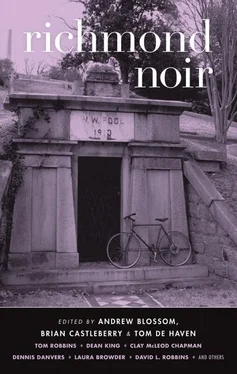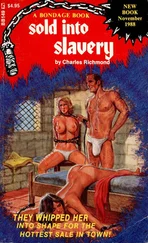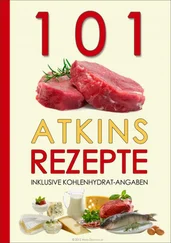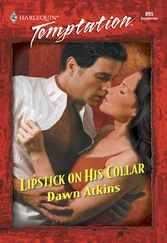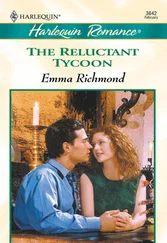X. Atkins - Richmond Noir
Здесь есть возможность читать онлайн «X. Atkins - Richmond Noir» весь текст электронной книги совершенно бесплатно (целиком полную версию без сокращений). В некоторых случаях можно слушать аудио, скачать через торрент в формате fb2 и присутствует краткое содержание. Город: New York, Год выпуска: 2010, ISBN: 2010, Издательство: Akashic Books, Жанр: Детектив, на английском языке. Описание произведения, (предисловие) а так же отзывы посетителей доступны на портале библиотеки ЛибКат.
- Название:Richmond Noir
- Автор:
- Издательство:Akashic Books
- Жанр:
- Год:2010
- Город:New York
- ISBN:978-1-933354-98-9
- Рейтинг книги:4 / 5. Голосов: 1
-
Избранное:Добавить в избранное
- Отзывы:
-
Ваша оценка:
- 80
- 1
- 2
- 3
- 4
- 5
Richmond Noir: краткое содержание, описание и аннотация
Предлагаем к чтению аннотацию, описание, краткое содержание или предисловие (зависит от того, что написал сам автор книги «Richmond Noir»). Если вы не нашли необходимую информацию о книге — напишите в комментариях, мы постараемся отыскать её.
Richmond Noir — читать онлайн бесплатно полную книгу (весь текст) целиком
Ниже представлен текст книги, разбитый по страницам. Система сохранения места последней прочитанной страницы, позволяет с удобством читать онлайн бесплатно книгу «Richmond Noir», без необходимости каждый раз заново искать на чём Вы остановились. Поставьте закладку, и сможете в любой момент перейти на страницу, на которой закончили чтение.
Интервал:
Закладка:
He could get up but he wanted to sit and cry, to cover his mistake. No one offered him a hand from the other team, and his coach shouted, “Come over here!” The umpire walked away, back to first base, because there were two outs and no one left on base. Carl had hit a double and was stretching it into a triple when his feet tangled. Someone should give a guy a hand up when he does that, even when he doesn’t make it.
The whole ball field went silent. Carl heard a crow, that’s how quiet it was that day.
The metal bleachers sounded a slow drumbeat, hollow and dirgeful. Mrs. Wilcox stepped down them, resolute. She strode out of the bleachers, away from all the others who would not stand and who had shouted at him for making an out. She was a tall, pale, gaunt woman. He did not know her first name but believed it was Agnes, Mildred, or Virginia, something austere.
Mrs. Wilcox walked onto the field. She looked nowhere but at him. No one, not even his coach, shouted at her When she reached him, she did not bend but sent down an open hand. He took it and was lifted to his feet. The torn knee smarted and dirt clung in the scrapes on his palms, but he walked with her hand-in-hand away from the game, across the street, into her house.
“You were showing off,” she said, pulling out a kitchen chair.
“Yes, ma’am.”
“And you see where that got you.”
“Yes, ma’am.”
She disappeared, to return with a bottle of iodine and a box of Band-Aids.
“Roll those pants up.”
He did so gingerly, loosing dirt from his uniform onto her kitchen floor.
“I’ll get that,” she said. “Come on.”
She soaked a washcloth, then took the chair beside him. She patted her lap, for him to lift his leg up. He did. Her leg under his did not feel so bony as he’d figured it might. She patted clean his scrape. When the blood and infield dirt were wiped off, the wound looked like claw marks, little trenches that filled with blood again. Mrs. Wilcox pressed the washcloth over his knee and watched his face for a reaction. He gritted his teeth and looked down.
When she pulled away the cloth, the gouges stayed white. “There, now.”
She coated iodine over the cuts, blowing while she painted. Then she moved him to the sink, washed his hands, and dabbed the slices on both his palms with more iodine.
When she was done and the throbs in all his wounds eased, she stood back, hands on hips. She towered.
“Back to the field with you.”
“You came to the game.”
“It’s right across the street from my house. Why wouldn’t I?”
“I don’t know.”
“I’ve seen a few of your games, Carl. I like to keep up with my favorite students.”
“I was your favorite?”
“One of my favorites.”
She walked him to the front door. He went out first and held the screen door for her to follow. She stayed behind.
“You go ahead,” she said. “Finish up. I’ll see another game.”
He looked into the white bottom of her chin. Her open hand floated to the top of his head to lift his ball cap. Mrs. Wilcox rubbed his crown.
“Mrs. Wilcox?”
“Yes?”
“Will I have you again in fourth grade?”
“No.”
She handed him back his cap.
“Go on,” she said. “And don’t worry. You can come see me anytime.”
He touched his own head now, beneath the bleachers, watching the dark windows of her house.
He crawled from under the stands, ducking the crossbars, and walked onto the diamond. The dimensions struck him, how small the field was. He sat in the red dirt between second and third, feeling gargantuan. He thought of his old coach and teammates, wondering where any of them were today. Did he get lost, to know nothing of them anymore? Were their lives so different from his, that they never crossed paths? Surely, he thought. He grew irritated, that he should be the one to consider himself lost. Why him? He was the one stretching a double into a triple. He fell, but he was the one. They were the lost boys. They never went for it.
An ache brought his hand to his gut. The last time he sat here, he hurt too. He rose, and like he did long ago, walked with his pain off the field, across the street.
He stopped in front of her home. He cased the house in a minute. One story, probably two bedrooms. No bars or electronic alarms. No lights inside, no car parked in front. He slid along a wall to the backyard. No doghouse or pet toys on the grass. He crept up the back steps to peer inside the kitchen door. No dishes in the sink or on the counter, nothing on the table, the same table where she’d painted him with iodine and blown on it. Curtains drawn against the summer sun.
He sucked one deep breath, considering another way to go. Walk off. Choose something else. That was the difference, he thought. Choice. He did not have it. In the end, that was what set him apart from everyone else. It made him innocent too. He took from his pocket a small flashlight. With the butt, he tapped the pane closest to the doorknob, just hard enough to break it.
The glass rived into fissures. He paused to see if any light or sound came from inside. He flung his eyes to the neighbors’ yards, checking for lights flicked on, any attention paid to the suspicious noise he’d just made. Nothing. He returned to the broken pane. The house remained dark. He pushed in one crack; a lone shard grinded and gave way, to break on the kitchen floor with a tinkle. He pulled to him more swords of glass, until he had enough room to reach his hand inside to the locked bolt and doorknob.
He stepped on tiptoes into Mrs. Wilcox’s house. The only glow came from a digital clock on the stove. He laid the sharp bits of broken glass in the trash can, and with the flashlight in his teeth chased down the busted pieces on the floor.
He quickly found the first thing he needed, a cloth grocery bag. Keeping the flashlight from straying across the curtains and Levolor blinds, he surveyed the kitchen. It matched his memory; a few new knickknacks had been added, but the layout, the tile floor, the feel, remained unaltered. He opened and closed a few drawers. There’d be nothing of value in this room, but he lingered until he caught himself running his hand over the kitchen chairs.
He moved into the den, careful with the flashlight beam. Just as on the ball field across the street, he felt huge against this room. The feeling swept not only out of his recollection, when he’d been so much smaller, but now, as a trespasser.
The shelves and tabletops in the den offered nothing he could sell. Mrs. Wilcox’s own memories were on display, in pictures and bric-a-brac. He cursed under his breath before shining the light on one silver cup, engraved with an acknowledgment of forty-three years’ teaching in Henrico County. There was her first name, Julia . He never would have guessed. He dropped the cup in the sack. Keeping his touch light, he slid open the drawer of a side table.
“I don’t have any jewelry.”
He whirled, shining the flashlight straight at her She stood in pink nightclothes, barefoot, her long hand on the wall of the arch leading to the hall.
“I do have two gold fillings.” She shuffled forward. He left Sandston Elementary sixteen years ago; he had not seen her again until now. She remained taller than him. She said, “But if you were a dentist, I doubt you’d be breaking into people’s homes.”
Mrs. Wilcox felt her way through the room, one arm outstretched. She dodged a table and lamp to deposit herself on an easy chair, which rocked back when she sat; a pad lifted under her feet. The chair was a recliner.
“Go ahead,” she said, wagging the back of a hand at him across the little room. “I can’t be expected to sleep while I’m being robbed.”
Читать дальшеИнтервал:
Закладка:
Похожие книги на «Richmond Noir»
Представляем Вашему вниманию похожие книги на «Richmond Noir» списком для выбора. Мы отобрали схожую по названию и смыслу литературу в надежде предоставить читателям больше вариантов отыскать новые, интересные, ещё непрочитанные произведения.
Обсуждение, отзывы о книге «Richmond Noir» и просто собственные мнения читателей. Оставьте ваши комментарии, напишите, что Вы думаете о произведении, его смысле или главных героях. Укажите что конкретно понравилось, а что нет, и почему Вы так считаете.
